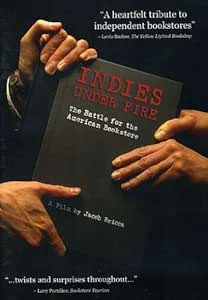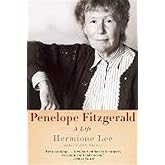American bookstores have long served as more than mere retail spaces; they are cultural touchstones that have shaped literary culture, fostered community, and influenced the evolution of the English language. From the quaint, independent bookstores of small towns to the sprawling chains that dominate urban landscapes, these establishments have played an essential role in the literary journey of countless individuals. This article delves into the historical significance, cultural impact, and the evolving role of American bookstores in shaping literary culture in English.
The Historical Evolution of American Bookstores
The history of bookstores in America is a fascinating reflection of the nation’s literary landscape. The evolution of these spaces can be traced through several key phases:
- The Colonial Era: The first American bookstores appeared in the 17th century, primarily in New England. These establishments were often tied to printing presses and catered to a small, literate elite, focusing on religious and political texts.
- The 19th Century Boom: With the rise of literacy and the expansion of the middle class, bookstores flourished in the 1800s. Notable figures like Charles Scribner and the founding of Scribner’s Sons in 1846 marked the beginning of a new era.
- The Rise of Chains: The late 20th century saw the emergence of mega-bookstores like Barnes & Noble and Borders, which reshaped the retail landscape and made books more accessible to the public.
- The Indie Renaissance: In the 21st century, there has been a resurgence of independent bookstores, driven by a desire for community engagement and support for local authors.
The Role of Bookstores in Cultivating Literary Culture
Bookstores have played a pivotal role in nurturing literary culture in a variety of ways:
Community Hubs
Independent bookstores often serve as community hubs where readers can gather, share ideas, and engage with local authors. Events such as book signings, readings, and book clubs foster a sense of belonging and promote literary discussions.
Promoting Diverse Voices

Many independent bookstores prioritize diversity in literature, showcasing works by authors from various backgrounds. They often curate selections that may not receive attention from larger chains, helping to amplify marginalized voices.
Literary Education

Bookstores frequently host workshops, lectures, and other educational events that promote literacy and writing skills. These programs can range from creative writing classes to discussions about literary theory, providing invaluable resources for aspiring authors and avid readers alike.
Case Studies: Iconic American Bookstores
Several bookstores in America have left an indelible mark on the literary landscape. Here are a few noteworthy examples:
The Strand, New York City
Founded in 1927, The Strand is renowned for its vast selection of new, used, and rare books. With over 18 miles of bookshelves, it has become a pilgrimage site for bibliophiles. The Strand has also launched initiatives such as “The Strand’s Bookstore School,” which provides resources and support for aspiring writers.

As the largest independent bookstore in the world, Powell’s City of Books is a city block-sized haven for readers. It boasts a unique model of both new and used books, encouraging sustainability while offering a diverse range of genres. Powell’s also hosts events featuring local authors and thought leaders, reinforcing its commitment to community engagement.
City Lights Bookstore, San Francisco

Founded by Lawrence Ferlinghetti in 1953, City Lights Bookstore is famous for its role in the Beat Generation and its commitment to free expression. The store has been integral to the San Francisco literary scene and continues to champion countercultural voices through its publishing arm, City Lights Publishers.
Statistics: The Impact of Bookstores on Reading Habits
Understanding the influence of bookstores on reading habits can be illustrated through various statistics:
- According to a 2021 survey by the American Booksellers Association, independent bookstores saw a 30% increase in sales compared to the previous year, highlighting a growing appreciation for local shops.
- A Nielsen report indicated that 67% of Americans prefer to shop at independent bookstores to support local economies and foster community.
- Research conducted by the Pew Research Center found that 28% of American adults reported reading more books since the pandemic, with many citing local bookstores as primary sources for their reading materials.
The Digital Age: Challenges and Opportunities

The rise of e-commerce and digital reading platforms has transformed the landscape of the bookstore industry. While many independent bookstores initially struggled to compete with online giants like Amazon, they have adapted in several innovative ways:
Embracing E-commerce

Many independent bookstores have developed their online presence, offering e-commerce options that allow customers to purchase books online while still supporting local businesses. This hybrid model has enabled them to reach a broader audience.
Curated Experiences
Bookstores are increasingly focusing on creating unique in-store experiences that cannot be replicated online. This includes:
- Personalized recommendations from knowledgeable staff
- In-store events featuring authors, musicians, and local artists
- Cozy reading nooks and coffee shops to encourage customers to linger
The Future of Bookstores in Literary Culture
As we look to the future, American bookstores will continue to evolve while remaining integral to literary culture. Some anticipated trends include:
- Increased Collaboration: Bookstores may partner more with local schools and libraries to promote literacy initiatives and community engagement.
- Focus on Sustainability: Many bookstores are adopting eco-friendly practices, from sourcing materials to reducing waste, appealing to environmentally conscious consumers.
- Expansion of Digital Offerings: Bookstores will likely continue to enhance their digital presence, providing online book clubs and virtual events to reach wider audiences.
American bookstores have profoundly shaped literary culture, serving as vital spaces for community engagement, diverse voices, and literary education. From their historical roots to their modern adaptations, these establishments have fostered an environment where literature thrives. As they navigate the challenges of the digital age, bookstores are poised to remain cornerstones of literary culture, continuing to inspire and cultivate a love for reading in generations to come. The resilience and creativity of American bookstores affirm their role as essential players in the ongoing narrative of literature and culture in English.




